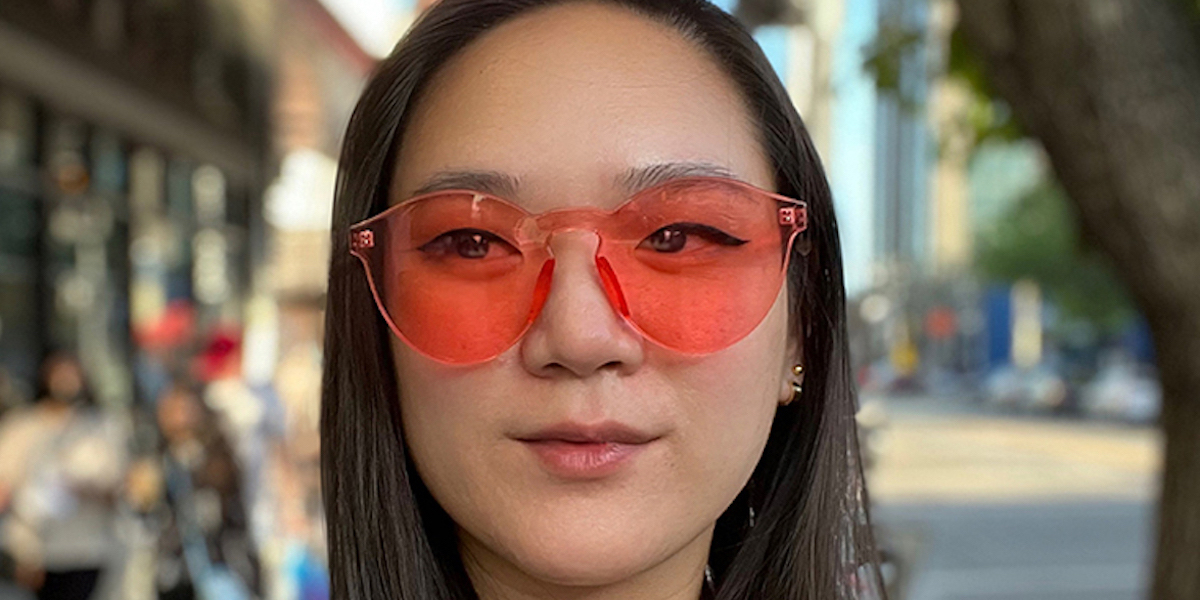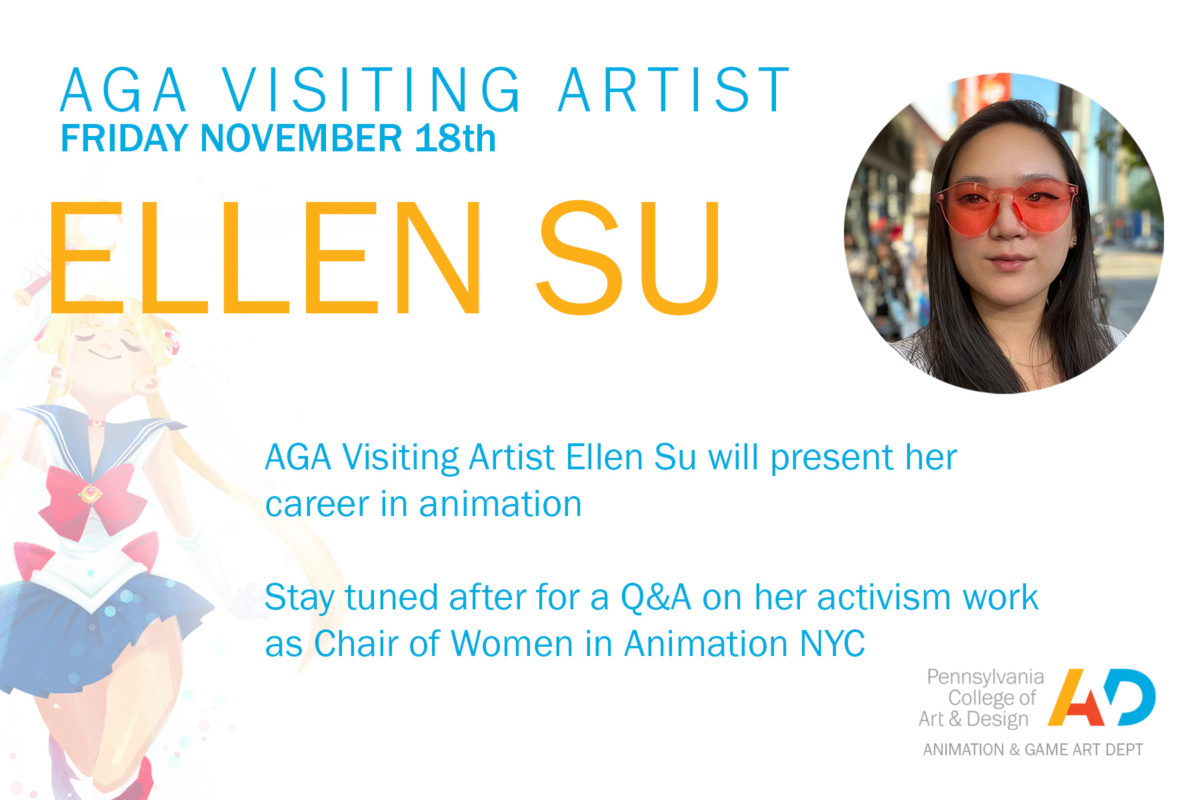
Artist Talk series brings Titmouse’s Artistic Recruiter Ellen Su to PCA&D
Thursday, November 3rd, 2022
Ellen Su spent lots of her childhood absorbing storytelling on television, entertaining herself while her parents worked long hours to build a life in America.
As it turns out, those hours with the TV ended up impacting her creative career path, too.
Now Head of Artistic Recruiting at animation studio Titmouse and based in New York, the 2013 School of Visual Arts grad says she has accumulated insight from mentors, from her experience in teaching — and maybe more than a little bit from Sailor Moon.
Su joins Pennsylvania College of Art & Design for an Artist Talk Friday, Nov. 18, at 2 pm, as a guest of the Animation & Game Art Department. Learn more about what drives her love of storytelling, her influences, and what she looks for when hiring:

Your bio here notes that it’s the love of storytelling that drives you: What inspired you to choose this particular medium?
Ellen Su: I was an only child to immigrant parents who were working all the time to try to give me the best education and life possible in America. That meant most of my childhood was being home alone with nothing else to do other than watch TV. At some point, I guess it kind of became the way my imagination worked. I’ve never been a good impromptu verbal storyteller; like, I am absolutely terrible at D&D. My thoughts and words are often too disjointed when I’m. put on the spot, but when I’m coming up with a story I feel like it plays out like a movie in my mind: shot composition, musical cue, how long to stay on a funny expression.
Was there anyone who served as a mentor for you? What was something they did that was really helpful in your development?
ES: There’s always something to learn from everyone in your life! One of my mentors was Joe Burrascano, my teacher from School of Visual Arts, and later my boss when I was hired as a director at Nathan Love. He taught me many things about leadership and having level-headed conversations, how to handle stressful projects, how to talk to clients. He taught me to reflect on all feedback, even if it’s bad or seems untrue. It’s important to understand why the person felt that way and truly assess if there was anything you could’ve done better next time. Thanks, Joe!
Was there influential animation in your life growing up that really drew you to the medium?
ES: A big influence was Toonami and Adult Swim on Cartoon Network when I was growing up. Sailor Moon was the gateway anime. It introduced me to shows such as Cowboy Bebop and Ghost in the Shell: Stand Alone Complex. I think I started drawing because of Sailor Moon — I’d come home from school, turn on the TV, and draw the characters from the show in the first sketchbook I’ve ever owned as I watched it. I still have the sketchbook!
Do you find it a challenge to balance the recruiting/management part of your job with the strictly creative part?
ES: There are times when I really want to draw and contribute to a project I’m recruiting for. But my initial goal going into recruiting was so I could make room to work on my own personal project. Whenever I get those urges I just need to remind myself to funnel that energy into my own work instead!
You’ve taught at School of Visual Arts: how does teaching inform what you do at Titmouse, and vice versa?
ES: Teaching is, I think, a fundamental pillar to becoming a good leader. Anyone that wants to become a director, art director, should teach a class for a couple of semesters. I learned so much when I was teaching. When you’re a director or leader, you have to be able to give clear directions or explain your vision so that your artists know what to do. You might see artwork and not like it, but how can you explain why you didn’t like it without just saying, “This sucks.” Teaching was a crash course on learning how to verbalize my criticism into constructive feedback. It showed me the many different personalities out there that I could one day be collaborating with. Animation is a team sport, you almost never work by yourself. While teaching I was able to learn different ways to communicate to artists, how to motivate them, and how to get the best out of them.
What are three characteristics you look for when hiring?
ES: For overall jobs, a collaborative personality and attitude — “easy to work with” is the phrase that gets used a lot by directors. Someone who is willing to learn and curious. And personally, if we have more than enough options and it’s down to one person we really want to keep on the team, then I’m looking for that proactive quality. Someone who sees the bigger picture sees pitfalls in any part of the process, and will suggest solutions. They might even start to anticipate the needs of the people they work with and offer to address things before they become a problem. When I’m looking for people to promote or suggest for leadership positions, that is what I am looking for!
Ellen Su on Instagram
